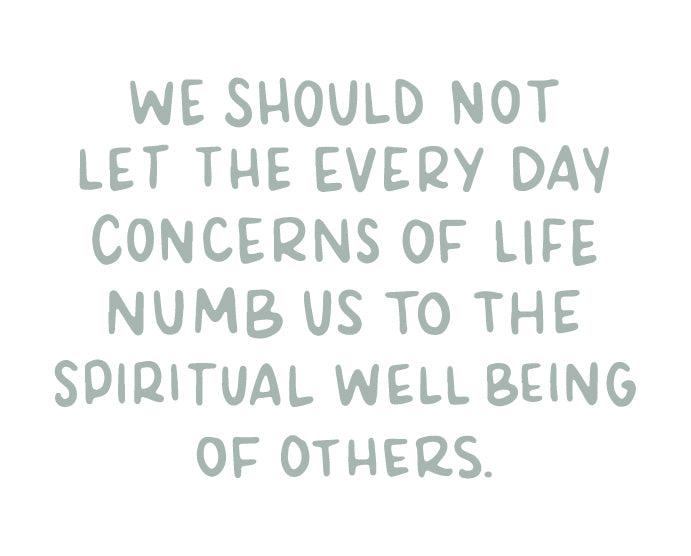How important to you is the spiritual health of others?

I’m often challenged by questions like this when I read the epistles in the New Testament. And I am especially challenged in this regard by 1 Thessalonians.
First Thessalonians was written to the church Paul had started in Thessalonica while on one of his missionary journeys. As was his custom, he began his stay there by preaching the gospel in the local synagogue, and we’re told in the book of Acts that some Jews, along with many Greeks and prominent women, became Christians (Acts 17:1–9).
But Paul’s preaching also stirred up formidable opposition. Some of the Jews started a riot and—unable to find Paul—attacked Jason, whom Paul had been staying with. The city officials took “a security bond from Jason” (Acts 17:9), which likely means that Paul and his ministry partner Silas would have to leave Thessalonica and not return. Otherwise, there would be repercussions for Jason.
So Paul had effectively been banished from Thessalonica. His time there was not nearly as long as he had hoped, and these young Christians were now left to fend for themselves in an atmosphere of intense opposition. How would these young believers respond to such pressure? Would they stand firm in their faith? Or would they decide that Jesus was not worth the trouble and walk away?
In 1 Thessalonians, Paul expresses the agony he felt over this situation. He talks about being “forced to leave” them (2:17) and how he “made every effort…time and again” to come see them, but was prevented from doing so (2:17–18). Finally, when Paul could “no longer stand” not knowing how they were doing (3:1, 5), he sent Timothy to check up on them. And Timothy came back with an encouraging report that caused Paul to gush with gratitude (3:6–10).
Paul’s language throughout 1 Thessalonians 2:17–3:10 is deeply emotional. He is worried about the faith of others. He is relieved to hear that they’re standing strong. And—as I mentioned earlier—this prompts me to do some reflecting. It forces me to ask questions like these:
- How unsettled am I to see someone struggling in their faith?
- How relieved am I to see others thriving in their faith?
- What other believers in my life am I making an effort to spend time with?
- Who can I seek to strengthen and encourage in their faith?
Speaking for myself, I have not been banished from a city. In fact, with modern technology, it’s never been easier to communicate with other Christians I know. The less obvious danger I face, though, is letting the everyday concerns of life numb me to the spiritual well-being of others. I can go long periods of time without checking in on someone. I can fail to reach out to that person who hasn’t been to church in a few weeks. I can simply assume that people are “good” unless I hear otherwise.

But First Thessalonians challenges me to be more proactive in my relationship with other Christians. After all, Paul himself told these believers that they would encounter persecution for their faith (1 Thessalonians 3:4). And Jesus said that to follow Him meant taking up a cross and dying to ourselves daily (Mark 8:34–38). The Christian life is a struggle. And that means we need each other. It means that even if people are “good,” there are still ways in which we can encourage them in their faith. No one is beyond the need for encouragement in the Christian life.

A bit earlier in 1 Thessalonians, Paul uses deeply affectionate language to describe his interaction with these believers. He says that he had been like a nursing mother to them (2:7). He encouraged and comforted them like a father (2:11–12). He also writes: “We cared so much for you that we were pleased to share with you not only the gospel of God but also our own lives, because you had become dear to us” (1 Thessalonians 2:8).
Consider other Christians you know. First, take time to thank God for them. Then, consider ways in which you can more intentionally share your own life with them and help to strengthen their faith. And then make Paul’s prayer for the Thessalonians your own prayer for them:
“[M]ay the Lord cause you to increase and overflow with love for one another and for everyone, just as we do for you. May he make your hearts blameless in holiness before our God and Father at the coming of our Lord Jesus with all his saints. Amen.” - 1 Thessalonians 3:12–13
Additional Resources for Christian Community:










